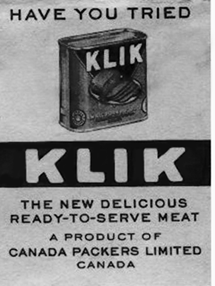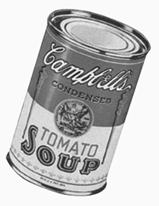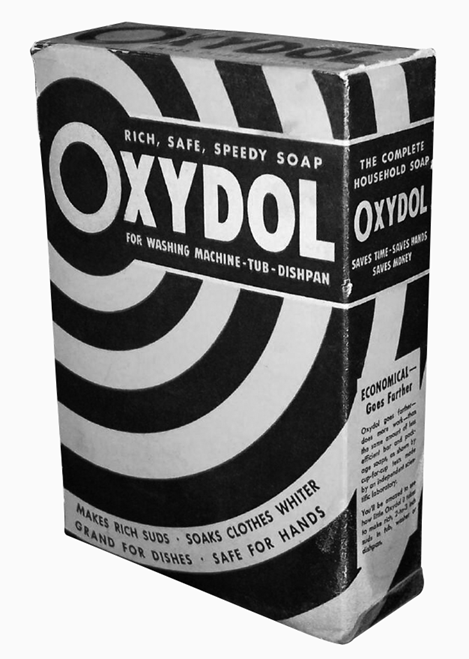CHAPTER THREE - By the River
THE cabin reminded us of the beach cottages on Lake Winnipeg that we rented for our summer holidays. Each of the two tiny bedrooms was just large enough for a double bed. The small living room held two overstuffed, faded maroon velvet chairs and a matching sofa. A green-painted wooden table stood in the centre of the room, surrounded by four straight-backed green wooden chairs. There was a tiny kitchenette with a hot plate and an icebox, and a set of blue willow china dishes stacked on shelves behind a green and white gingham curtain. A wooden swing took up most of the screened porch, on a stand outside the back door sat a rain barrel with a spigot and nestled among the trees a few feet behind the cabin was a surprisingly clean outhouse. A pump for drinking water stood at the end of the road.
‘Come with me and I’ll show you how to use the pump,’ Daddy said, taking a white enamel pail from the kitchenette.
We raced up the road ahead of him. He hung the pail under the spout, and the pump’s wooden handle squeaked as he moved it up and down, up and down. Suddenly, water gushed into the bucket.
‘It’s good,’ Daddy said, pumping some water into his free hand and sucking it up with his lips. Then we held our hands under the spout and he pumped some for us too. It was very cold, so cold our mouths felt numb and our teeth hurt, just like they did in the winter when we tasted snow.
‘Why is it so cold?’ Barbara asked.
‘It comes from a well deep in the ground,’ Daddy explained.
‘It’s always cold down there because it never gets any sun.’
When we got back to the cabin with the water, Mother said she needed to buy some food for lunch.
‘There’s a store just down the road,’ she said, ‘Let’s go see what they have.’
The screen door creaked a welcome as we entered the store and the smell of floor wax and oranges tickled our noses. Behind the counter stood a man with only one arm.
‘What happened to your arm?’ asked Barbara.
‘Oh, Barbara!’ cried Mother, her face turning red with embarrassment. ‘It’s none of your business!’
‘Aw, that’s okay. All the young ‘uns ask me that. I got run over by a train when I was ten. Name’s Frank. You folks stayin’ in the cabins?’
Frank seemed happy to have a new audience for his stories.
He was fishing off the trestle bridge over Borden’s Creek, he said, and didn’t hear the train coming. He managed to jump off the tracks but slipped and fell and his right arm hit the rail just as the train passed by. The arm was severed above the elbow and he spent most of the next year in the hospital. His parents owned the store, and Frank started working there when he recovered from his accident.
‘I didn’t go back ta school on account of I couldn’t write no more,’ he told us. After his parents died, Frank became the sole proprietor. ‘This place has been here just about forever,’ he said, ‘right on this here corner.’
We were fascinated by the brass cash register with its intri-cate scrollwork, and the bell that tinkled loudly each time the drawer opened. The items on the shelves were arranged in no particular order, but Frank seemed to know where everything was. ‘If ya want anythin’, just ask.’



With a solid following during the war years, products such as Oxydol, Campbell ’s Soup and Klik can stil be found today on grocery store shelves.
There was an array of sewing supplies – pins, needles and dozens of spools of brightly colored thread. Bolts of printed fabric shared shelf space with multi-hued skeins of yarn, knitting needles and crochet hooks. A basket on the counter held packages of hooks and eyes, snap fasteners and buttons of all sizes. Tins of Campbell’s soup with their red and white labels were lined up next to blue and silver packages of Gillette razor blades and orange boxes of Oxydol laundry soap. There were jars of peanut butter and jam and tins of vegetables, fruits, tuna, salmon and Klik. Loaves of bread sat next to packages of cookies. In an icebox at the back of the store were bottles of milk and cream, blocks of butter and cheese, cartons of eggs and packages of bacon. Crates of oranges, apples and bananas stood on the floor beneath the front window. An assortment of carpentry tools hung on the back wall along with packages of nails and screws. Best of all were the glass jars filled with jellybeans, gum drops and lollipops that sat on the counter beside the cash register. We couldn’t take our eyes off them as Mother paid for a loaf of bread, a pound of butter and a can of salmon.
‘Can we get some candy?’ asked Barbara.
‘May we.’
‘May we?’
‘All right. I’ll buy each of you a small bag of jelly beans, but you mustn’t eat them until after lunch.’
Frank set two tiny brown paper bags open on the counter and scooped jellybeans into them. We stared in amazement, for he did all this with only one arm.
‘What about the little fella?’ he asked.
‘Roger’s too young to eat candy,’ Mother told him.
‘Well now, he’s gotta have a treat, too!’ Frank picked a box of arrowroot biscuits from a shelf, held it under the stump of his arm and tore it open with his one hand. He dropped two biscuits into a bag.
‘There, this is for him,’ he said.
‘Thank you, you’re very kind,’ said Mother.
‘No trouble. Nice ta see new folks in here. Be sure ta come back!’
For lunch, Mother made salmon sandwiches, my favourite.
Then Daddy went back to camp and Mother lay down to rest while Roger napped.
‘You girls may go and play on the shore,’ she said, ‘but don’t go in the water. And Margaret, I trust you to look after Barbara.’
On the beach we dug in the gravel with spoons from the cabin, and filled our pockets with stones. I liked the ones shaped like arrowheads, and those with pink wiggly lines through them.
After a while we climbed into a leaky old rowboat at the water’s edge and pretended to be sailors. Out in the river a freighter steamed by, smoke billowing from its red-ringed twin stacks.
I gazed at it, fascinated. I had never seen a real ship before. It looked exactly like the ones in my picture books, packed away in the attic of our Winnipeg house. As the ship disappeared around a bend in the river, I turned to Barbara.
‘I wonder where it’s going?’
But Barbara wasn’t there. Oh no! Fear poked at the pit of my stomach. Where was she? Mother had told me to look after her.
Maybe she’d drowned while I was daydreaming.
‘Barbara!’ I called. ‘Where are you?’
‘Over here!’ Barbara sounded excited.
She was sitting high up on the beach on a large rock. Beside her sat a man in black pants and a fuzzy red and black sweater. A shapeless black fedora was pulled over his forehead, shadowing his face. I climbed over the prow of the boat, carefully, because it was sitting in the mud, and I didn’t want to soil my new striped running shoes. Barbara had jumped without looking. I could tell, because there were her footprints in the mud. Her shoes would be dirty, and Mother would be cross.
‘Come here!’ Barbara called.
I ran up the beach to where they were sitting.
‘Show her,’ Barbara said to the man.
‘No!’ He shook his head and grinned. His teeth were uneven and yellow.
‘Oh, please!’
‘Well, okay.’ He pushed his grey fingers into a hole in the front of his pants and pulled it out. It was sort of shimmery pink, like the skin on my stomach when I’d been sitting in the bath for too long.
‘Feel it!’ said Barbara. ‘It’s nice and soft.’ She reached out a chubby hand and touched it gently.
‘No!’ I cried.
‘Do it to her,’ Barbara said.
‘Do what?’ I was afraid, but curious.
As he pulled me in front of him, his sweater felt rough against my face. His crab-like fingers stretched the elastic waist of my slacks and felt their way inside. I screamed, and he jerked his hand out of my pants and stumbled away down the beach, his dusty black boots scattering sand and stones, his black pants flapping about his legs. I turned and ran crying back to the cabin and Barbara was right behind me.
‘What’s wrong?’ Mother was alarmed at our flushed faces. I blurted out the story.
‘Now tell me again,’ she said when I had finished. ‘Exactly what happened?’
I told her again, more slowly. ‘There was a man and he pulled something out of his pants and Barbara felt it and said it was nice and soft, but I was too scared to touch it and he pushed his dirty hand inside my pants and I screamed and he ran away. He did it to Barbara, too.’
‘Well,’ said Mother. ‘You’ll both have to have a good wash.’
She heated water in a kettle on the hot plate and filled an old galvanized laundry tub that hung on the back wall of the cabin.
She found a bottle of Lysol in the kitchen cupboard and poured it into the water, and we took baths, first me and then Barbara, who giggled as she immersed herself in the pungent warm suds.
Daddy came later, after we were in bed. Mother had sent him a telegram. Hearing the jeep drive up, I knelt on the bed and looked out the window. A soldier sat behind the wheel, waiting to drive Daddy back to camp. His cigarette made glowing circles in the dark. Barbara and Roger were asleep, but I lay listening to the hushed voices on the other side of the wood partition. Daddy wanted to call the police, but Mother said no.
‘I don’t want to upset the girls, and I don’t think he did any real harm.’
‘I suppose it’s just as well not to make an issue out of it,’
Daddy agreed at last. ‘In any case, we won’t be staying here longer than a couple of days.’
‘Why not?’ Mother sounded alarmed.
‘We’re being sent to Jamaica. We sail in ten days. But first, we’re going back to Winnipeg for five days of embarkation leave.’
‘When?’
‘The day after tomorrow. I’m sorry, Darling.’
‘But the house is rented for three months! Where will we stay?’
‘Perhaps you could move in with your sister.’
‘Oh, Victor, you know she already has a full house!’
‘Well, I’m sure she won’t mind for a few days. That’s all it will be. Then maybe you could go to Medicine Hat to stay with your sister Edith. She has more space.’
‘How long will you be gone?’
‘You know I can’t tell you anything. In any case, I don’t know myself. Now I must get back to camp. I’ll come again tomorrow afternoon.’
I watched as the jeep carried Daddy away into the darkness, and then lay down quietly beside Barbara, thinking about the man on the beach. I knew that what he had done was wrong, but still I hadn’t been hurt. I worried about going back to Winnipeg where we had no place to live. Would we have to sleep in Aunt Henrietta’s basement, or under the stairs? At last I drifted off to sleep, listening to Mother’s quiet sobbing. At breakfast the next morning, she told us we were going back to Winnipeg.
‘Why?’ Barbara wanted to know. ‘It’s fun here!’
‘Where will we live?’ I asked. ‘There are people in our house now.’ I tried not to sound alarmed. I didn’t want Mother to call me a worrywart.
‘Daddy’s regiment has been ordered back. They’re leaving for Jamaica in ten days. We’ll stay with Auntie Henrietta until he leaves, and then we’ll go to visit Auntie Edith in Medicine Hat.
You’ll like it there.’ Mother was making every effort to sound bright and cheerful, but her eyes were red and puffy, and her mouth gave a little twitch as she spoke.
‘Auntie Henrietta doesn’t have room for us,’ Barbara said.
‘Where will we all sleep?’
It was true. Auntie Henrietta and Uncle Jim’s two grown sons and her daughter Edith all still lived at home, so the bedrooms were all full.
‘She’ll make room for the three of you,’ said Mother. ‘Daddy and I will take a room at a neighbour’s. It will only be for a few days. Now let’s go and explore the beach!’
We went for a long walk, watching the boats on the river and looking for interesting stones. There was no sign of the man.
Barbara and I were kept busy chasing after Roger, who insisted on running to the water’s edge, determined to get his feet wet.
After lunch, we played on the cabin porch with the Raggedy dolls while Roger napped and Mother began to pack once again.
Daddy arrived in mid-afternoon and took us for another walk on the beach. He stayed for supper, but returned to camp shortly afterward, promising to pick us up in a taxi the next morning.
‘But we’ll have to travel on separate trains,’ he said. ‘I have to go with the men.’
‘Can we sleep in the bottom berth this time?’ Barbara wanted to know.
‘We may not have berths. We haven’t had time to make reservations, and the trains are full,’ Mother said, trying to sound as if it didn’t matter.
‘Where will we sleep then?’
‘On the seats in the day coach. They’ll give us blankets and pillows.’
In the morning, Daddy arrived in the taxi. Barbara sat on his knee in the front seat on the way to the station.
‘Did you folks have a good stay in Brockville?’ the driver asked us.
‘Yes, it was fun,’ answered Barbara immediately. ‘My sister and I saw a man on the beach. He showed us his …’
‘Never mind, Barbara,’ said Mother, a red flush leaping to her face.
At the station, Daddy paid the driver and a redcap loaded our luggage onto a cart. Daddy asked at the wicket for sleeping car accommodations, but the clerk only shook his head. “Been sold out for days.’
Daddy helped us into a day coach crowded with soldiers and asked two of them to move so that we could sit together. He was in a hurry as his train was leaving in less than an hour and he was responsible for getting the troops on board. He kissed each of us on the forehead, and then his lips touched Mother’s briefly.
‘I’ll see you in Winnipeg,’ he said, and turned to walk briskly away. Mother bit her lip hard and buried her face in Roger’s hair, her eyes filled with tears.
‘Why are you crying, Mummy?’ asked Barbara.
Mother sat up straight and tossed her head.
‘It’s all right,’ she said. ‘We’ll have a good time on the train.’
Soon after we left the station, the conductor came to say he’d found berths in the sleeping car.
‘Thank God,’ said Mother. ‘It’s such a long journey. We need to be able to lay down our heads.’This time we fell asleep right away. We were becoming accustomed to train travel. Mother was too; this time she didn’t get sick, and that was a good thing, as she would need all her strength for what lay ahead in the weeks to come.